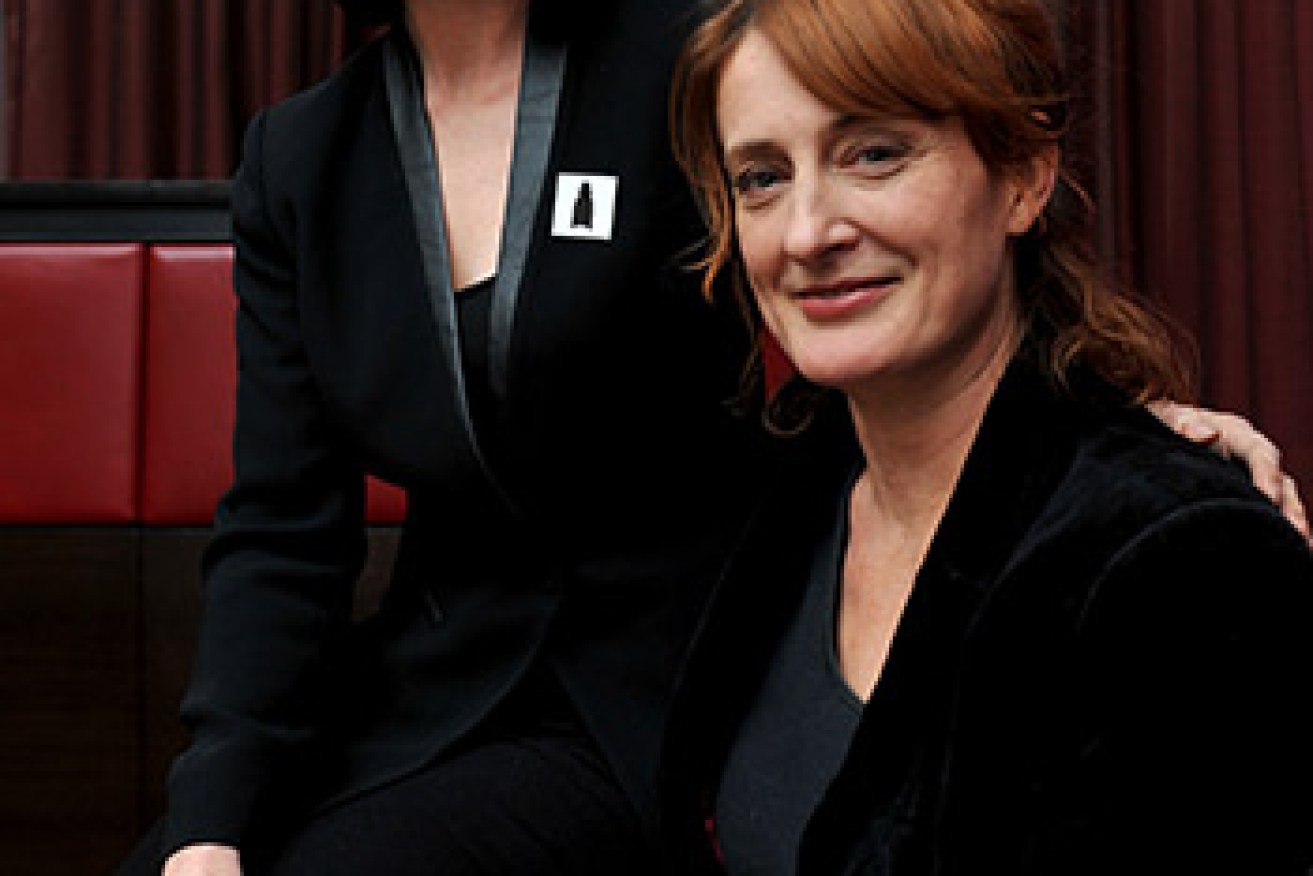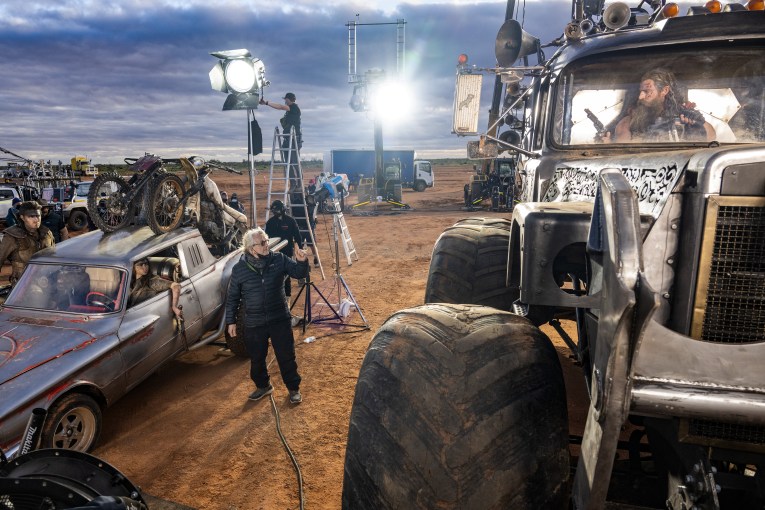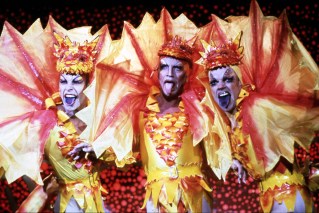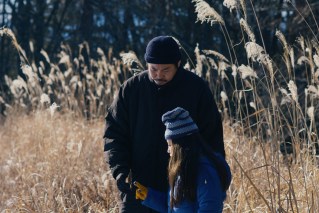Why was ‘The Babadook’ kept from Australians?

Babadook director, Jennifer kent pictured the with the film's star, Essie Davis, won the New York Film Critics Circle Award. Photo: AAP
“You can’t get rid of the Babadook”, claims the scariest film Australia has produced this year and it turns out you can’t stop the movie either.
That said, at this point you almost certainly also haven’t seen it as it is still something of Australian cinema’s best-kept secret.
On Tuesday, Australian director Jennifer Kent won the New York Film Critics Circle Award for Best First Film for The Babadook and it is just the biggest feather in a hat that is now overflowing with plumage. Already the film’s two stars, Essie Davis and Noah Wiseman, have been acclaimed far and wide.
· What’s wrong with our films?
· Eight awesome things about the Star Wars teaser
· ‘Serena’: the performance of Lawrence’s career
In the film of the same name, ‘The Babadook’ is a figure that emerges from the shadows inflicting terror on a depressed mother and son at the film’s heart, and on we the audience. In reality, The Babadook has emerged from the shadows of a depressed Australian film industry to win global acclaim for terrifying the world.

The Babadook director Jennifer Kent (L), pictured with the film’s star, Essie Davis, won the New York Film Critics Circle Award for Best First Film. Photo: AAP
The New York Film Critics Circle Awards mark the start of awards season. While no one is even suggesting Kent’s success implies further awards attention, it was only four years ago that David Michod won the same award for Animal Kingdom.
Unlucky 13
This all may come as something of a surprise for Australian audiences who almost certainly have not seen the film. Because they could not. The film opened in May domestically on a paltry 13 screens after the multiplexes shunned it as “art-house”.
By comparison, in the UK it opened on 147 screens in October and as such beat the Australian total box office figure ($258,000) in its opening weekend ($633,000). It has now surpassed $2 million.
Unlike Animal Kingdom, which opened on 40 screens, peaking at 78, The Babadook had no box office traction in Australia, so it was listed as one of the many examples of good films ignored by audiences in the consistent theme of 2014.
It is a theme that has driven filmmakers behind new releases such as Angus Sampson and Leigh Whannell’s The Mule and Nikos Andronicos’ Ad Nauseam to seek a digital release strategy to avoid the strict cinema exclusivity windows still in place in Australia.
That release model seems to be serving The Babadook extremely well in the USA. IFC released the film digitally for Halloween, where it could be rented or bought online for as little as $US9.99. Now a month later the film has been released in three cinemas across the country this week, with plans for expansion to 10 cities in weeks to come.
Such a roll-out is still frowned on by many in the Australian industry, however the theory states that a good film will garner good word of mouth via its online audience, which will propel wider ticket sales once the film hits cinemas.
Superstardom
In that regard, The Babadook’s US release is a huge success. The film is currently rated at 98 per cent on critic aggregator Rotten Tomatoes, finding only two negative reviews among 82. Veteran critic A O Scott in The New York Times said the film gave him nightmares, Rolling Stone dubbed it “the scariest movie of the year”, with The Daily Beast similarly call it the “best (and most sincere) horror movie of the year”.
Non-critics agree. William Friedkin, director of The Exorcist, has recently evangelised the film on his Twitter feed comparing it with Alien, Psycho and Diabolique and dubbing it the most terrifying film he has ever seen, while supreme horror author Stephen King has also unilaterally sung the film’s praises.
THE BABBADOOK: Deeply disturbing and highly recommended. You don’t watch it so much as experience it.
— Stephen King (@StephenKing) November 22, 2014
As yet the box office has been small, but unlike in Australia it is declared a success and looks to grow. The per-cinema income of the film on its opening weekend ranked it fourth in North America, one above Penguins of Madagascar which opened on 3,764 screens.
Such little victories are what make a real cinema success. Critical acclaim, genuine box office progress and now awards. While The Guardian and other media outlets have been quick to argue that this is yet another indictment on the Australian industry and audiences, pointing to the fact that the film has done better in France and Thailand than at home, in an interview, the movie’s producer Kristina Ceyton has sincerely talked of the film as a success and declared a satisfaction with the Australian box office figures.
She is right to do so and the international award is an apt reminder that our films deserve to be measured by more than a weekend’s takings at a handful of cinemas. The film has just had its home entertainment release here and will likely find a domestic audience now that its international fame has been cemented.
Certainly Kent is happy; she was already being courted by HBO before her win.
[jwplayer player=”1″ mediaid=”172982″]








